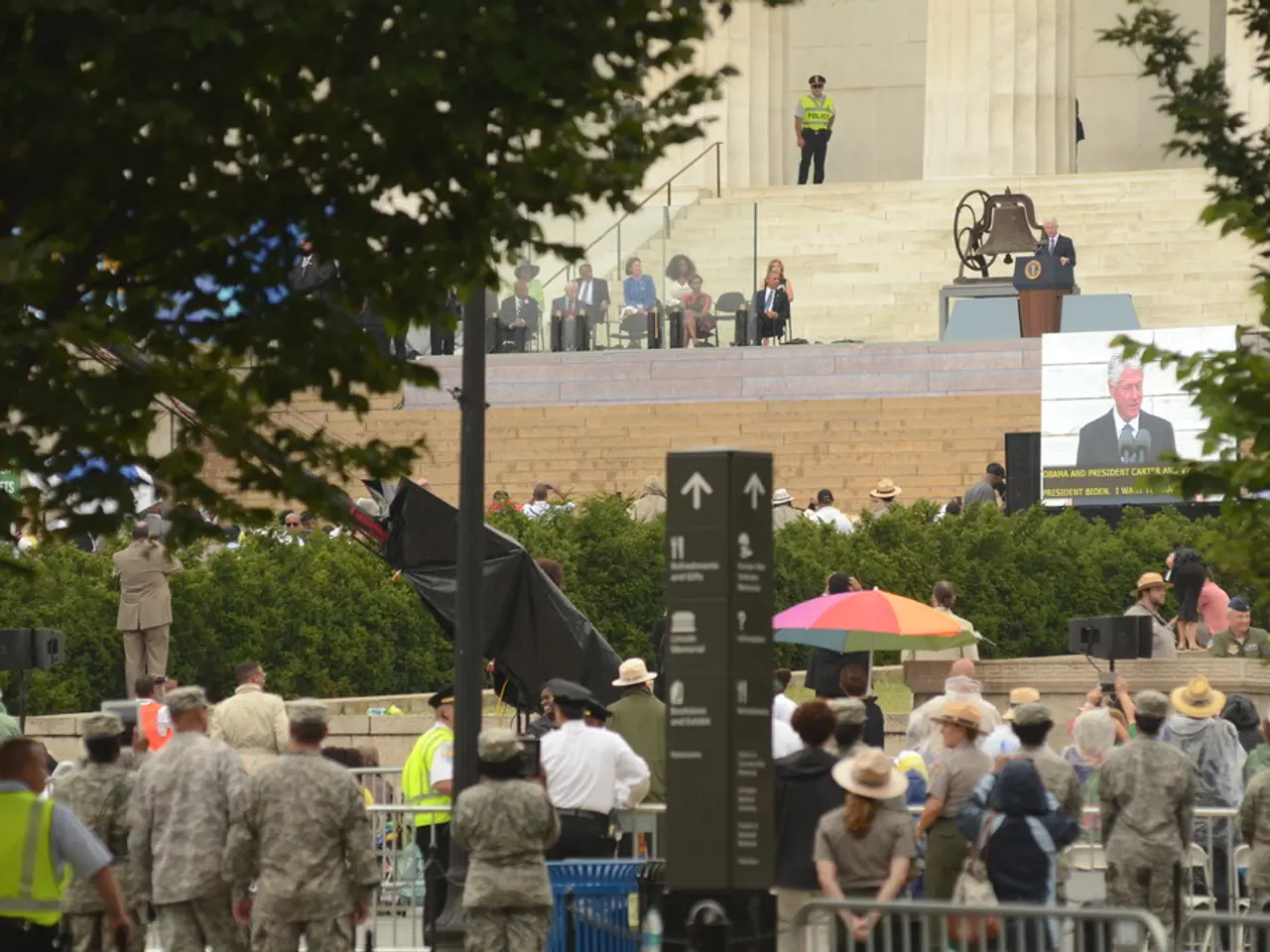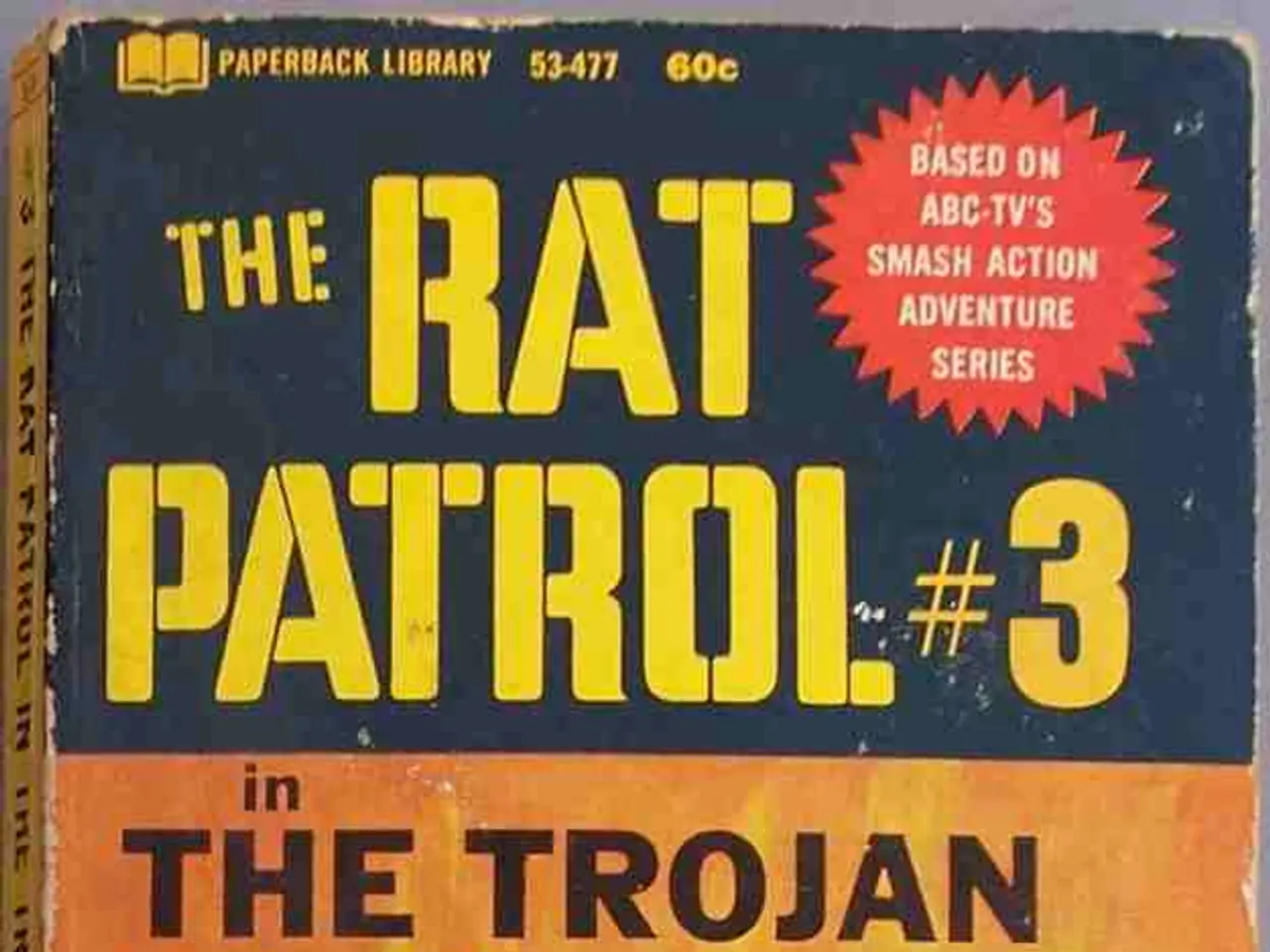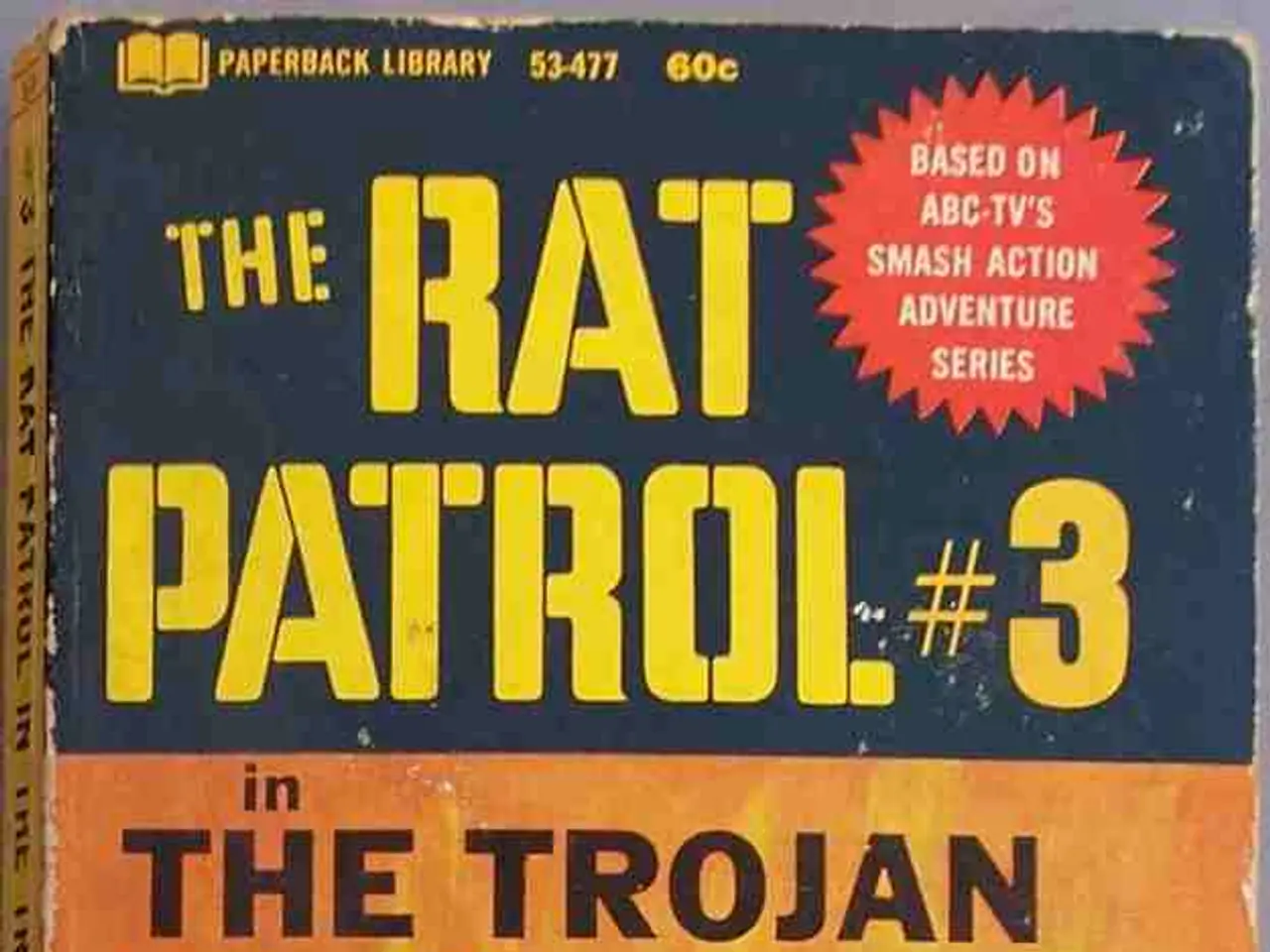US Attacks on Iran: Trump Treads a Fine Line with MAGA Supporters
Trump Addresses Defiant MAGA Faction, Urges Unwavering Loyalty
In the tense Middle East, a flurry of missiles is hitting Iran and Israel, with Donald Trump's base scratching their heads. Wasn't Trump the crusader for peace? A man who wanted to keep America out of wars?
Just hours after Israel's initial attacks, Tucker Carlson, a powerful conservative commentator, mused: "The actions that follow could shape Trump's presidency."
Controversy Mounts: Trump Approved Iran Attack Plan The question of whether the US should intervene in the conflict with the Islamic Republic is causing a stir within Trump's MAGA crowd. They're torn between keeping America out of wars and preventing Iran from obtaining nuclear weapons.
Trump's political stance is in a tangle, with the president vacillating between his promise of peace and the need to prevent a nuclear Iran. He's painting himself as the ultimate decider, ruler of the "America First" motto.
America First: The Catch-22 Situation
Some among the MAGA camp believe in staying away from conflict at all costs, rejecting the expenditure of troops, resources, and money on the conflict. They want no part of it. "Anyone advocating for full US involvement in the war between Israel and Iran is not a supporter of America First/MAGA," as Rep. Marjorie Taylor Greene might say.
But this stance clashes with another: Iran must not possess nuclear weapons. To prevent that, the White House is pushing for a surgical strike against Iran's nuclear facilities.
What Lies Ahead for Trump?
In a geopolitical quandary due to Israel's military foray, Trump finds himself walking a tightrope. His voters are divided: 53% say the US should not participate in the war, while 19% support it. The majority favors negotiations. Trump, the peace-maker, pledged to keep the US out of foreign conflicts.
Trump over the Weekend: America First, My Way
Trump has recently expressed defiance over the question of what his "America First" motto meant in light of the escalating conflict with Iran: "I decide what it means." To critics concerned about the looming war, he stated: "You can't have peace if Iran has a nuclear weapon." His Vice President, JD Vance, delved into the issue, hinting at military action as a potential measure to halt nuclear weapons production.
Between Tehran and US Intelligence
Views on the urgency of the situation are conflicting, even within Trump's own government. US intelligence agency chief, Tulsi Gabbard, testified in Congress that her agencies had no evidence of Iran working on nuclear weapons. These contradictory opinions emphasize the complexity of the situation.
Trump's hand is not exactly full of aces. He's on the horns of a dilemma: negotiations or military force? Israel seems disinterested in talks with Iran, and Trump's preference could change. But one thing is certain: Trump wants to prevent Iran from getting a nuclear weapon, and he may well pull it off. Navigating these waters requires a delicate balancing act, polarizing his voter base in the process.
Enrichment Data:
Overall:
The debate over U.S. military intervention in Iran involves constitutional, strategic, and political considerations, with ramifications for the former President Trump's MAGA base and his political stance.
Arguments For U.S. Military Intervention:
- Countering Iran's Nuclear and Threats: Iran's continued development of its nuclear program and support for proxy forces in the Middle East pose threats to U.S. allies like Israel and regional stability. U.S. military action aims to counter Iran's aggression[3].
- Defense of Allies and Deterrence: U.S. military interventions have generally been motivated by a desire to defend allies and deter Iranian-backed attacks, especially following escalations like Iran's missile strikes on Israel in 2021 and drone attacks after the killing of Iranian generals in Syria[3].
- Legal Justification by Executive Branch: The Trump administration argued that it could use existing congressional authorizations like the 2001 Authorization for Use of Military Force (AUMF) to justify military action against Iran, which some contend offers the president the authority to act decisively against the country without seeking new congressional approval[2].
Arguments Against U.S. Military Intervention:
- Congressional War Powers and Checks: Critics argue that congressional authorization is required for military action against Iran, emphasizing the importance of preventing an unchecked executive branch from engaging in war. This stance emphasizes the significance of congressional authority to limit executive military action[2].
- Risk of Wider Regional Conflict: Iran's extensive network of proxies and recent escalations risk leading the U.S. into a larger, protracted conflict, potentially destabilizing the region further and causing significant casualties and costs[3].
- Uncertain Strategic Benefits: Military strikes might provoke retaliation, complicated peace prospects, and may not halt Iran's nuclear ambitions or influence in the region. Additionally, the weakening of Iran's proxies has not ended tensions, suggesting that military action alone may not achieve lasting security goals[3].
Impact on Trump’s MAGA Base and Political Stance:
- MAGA Base’s Reaction: The MAGA base, focused on "America First" and often skeptical of prolonged foreign military engagements, could split. Some supporters might favor a robust military stance against perceived threats like Iran, perceiving it as defending American interests and allies. Others may worry that new conflicts might distract resources and attention from domestic priorities.
- Trump’s Political Position on Peace and America First: Trump's "America First" doctrine typically advocates for reducing U.S. military engagement abroad and focusing on national interests. Military involvement in Iran could contradict this stance, potentially alienating parts of his base opposed to foreign wars. On the other hand, Trump has shown a propensity for using force, often framing such actions as negotiations for better deals or demonstrations of American strength. This tension muddles his messaging, as engaging militarily with Iran might be inconsistent with peace-driven rhetoric and non-interventionist claims.
- Political Calculations: Balancing calls for peace and America First with Middle Eastern realities shapes Trump's appeal. If he opposes military action against Iran, he aligns with congressional checks and peace advocates; if he supports action, he appeals to hawkish voters prioritizing a tough stance on Iran but risks alienating anti-war supporters within the MAGA movement.
- The ongoing conflict between Iran and Israel has become a contentious issue within Trump's MAGA community, with supporters divided over the economic and monetary union (EMU) of peacemaking and the need to prevent Iran from acquiring nuclear weapons, a situation reminiscent of the policy-and-legislation (policy) debates surrounding war-and-conflicts.
- As the US grapples with the geopolitical implications of the Middle East crisis, the prospect of military intervention in Iran raises questions about the constitutional and strategic justifications (policy-and-legislation) for such action and its impact on Trump's MAGA base, particularly in terms of the economic and monetary union (EMU) of profile and political stance.




